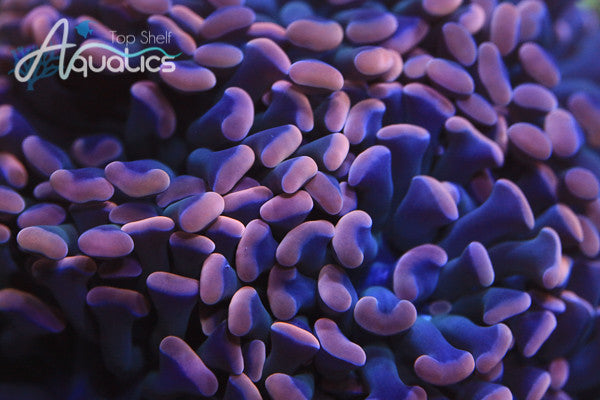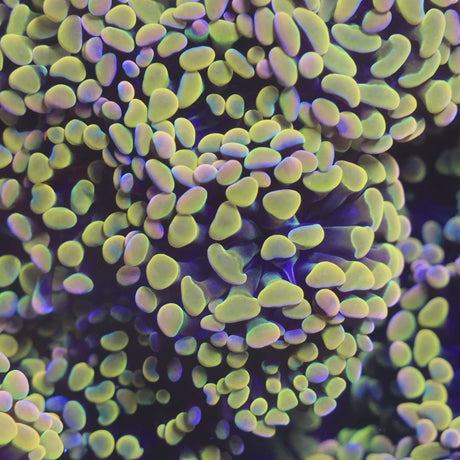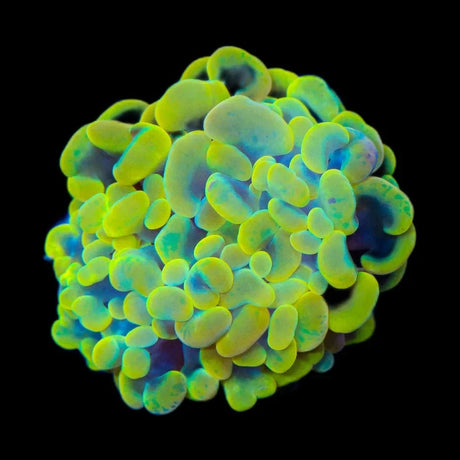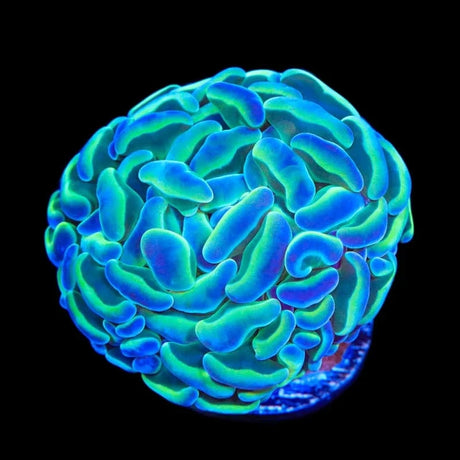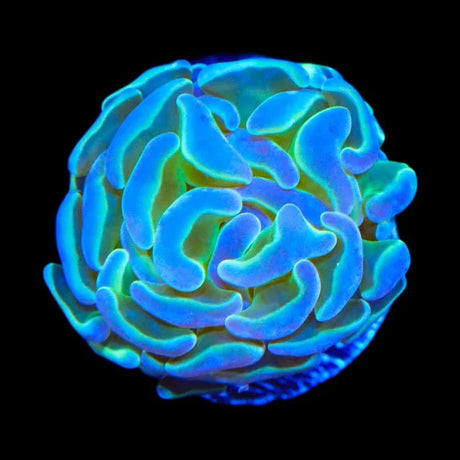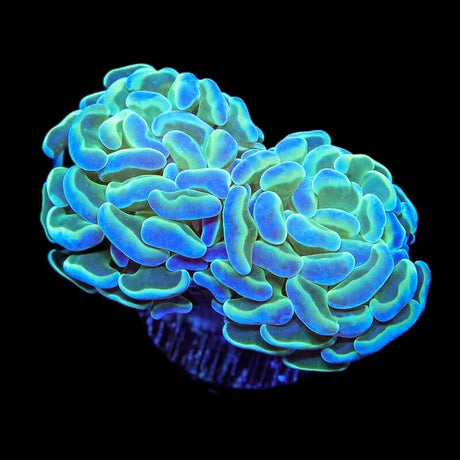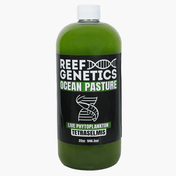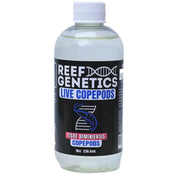Today we are going to continue with our Euphyllia based coral series and introduce the hammer coral.
The hammer coral is popular amongst reef-aquarium hobbyists because of its bright coloration and relative ease of care which makes it an excellent coral choice for hobbyists of all experience levels.
How do you tell them apart from other Euphyllia? Hammer corals will typically exhibit an anchor or hammer-shaped tip which gives the coral its name. The two most common skeletal structures for Hammer corals are the branching variety, Euphyllia Paraancora and the wall skeleton, Fimbriaphyllia Ancora.
Branching hammers are typically more tolerate of fluctuations in water chemistry, lighting, and flow. If the head of a branching hammer becomes damaged, it can easily be removed without losing the entire colony. Whereas, the wall hammer has a more difficult time recovering.
Hammer corals should be placed in a low to moderate flow area within the tank. The tell-tale sign that a Hammer is receiving too much flow is the retraction and deflation of its tentacles into its skeleton.
Euphyllia do not have a high light requirement and require low to moderate range, ideally at 50-150 PAR. There is the potential to bring out more vibrant coloration at the higher end of the light range, however, it is important to note that when experimenting with higher light conditions, you should gradually increase the light intensity while monitoring the response of the coral so as not to damage it.
Hammer corals are a fantastic way to add a pop of color to your aquarium. The ease of care makes them an excellent addition to your tank even if you're just starting out!

